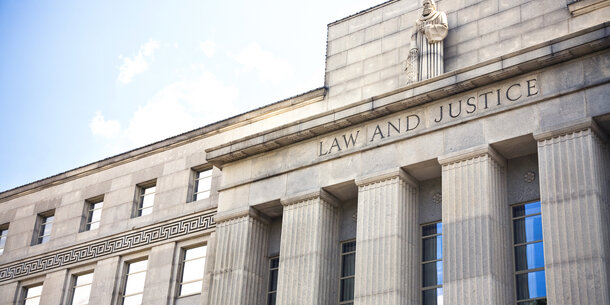State Courts
Colorado and Washington Considering Bills to Prohibit ICE Courthouse Arrests
Legislators in Colorado and Washington are considering bills that would prevent U.S. Immigrations and Customs Enforcement (ICE) from making arrests in and around courthouses in those states.
Colorado’s proposal, SB 83, follows the state’s enactment of a new law last year that bars local jails from keeping people in custody for ICE beyond their release dates. If passed, the bill “would be one of the — if not the — strongest statewide limitations yet on the agency’s ability to carry out immigration enforcement in Colorado,” according to the Colorado Sun. Washington’s proposal, SB 6522, follows a lawsuit filed last year by the state’s attorney general against the federal government to stop such arrests.
Over the past year, the Brennan Center has documented efforts in states across the country, including in California, Oregon, New York, and New Jersey, to prohibit or limit ICE’s ability to make courthouse arrests.
Utah State Senator Introduces Constitutional Amendment to Eliminate State’s Judicial Nominating Commissions
On January 30, Utah state Senator Dan McCay, (R-Riverton), introduced a proposed constitutional amendment that would have voters elect judges in nonpartisan statewide elections. Currently, Utah is one of 14 states that use a merit/retention system to select their judges, in which an independent nominating commission recommends judges for appointment by the governor. Once appointed, those judges stand for additional terms in retention elections.
McCay’s proposal has received pushback from those in his own party. Lt. Gov. Spencer Cox, said “[i]t would be impossible for me to overstate what a terrible idea this is.” The Utah State Bar also voiced its discontent, saying “[t]he current system of judicial selection has served Utah well in creating a highly respected judicial system.” The Utah State Courts have not taken a position on the bill, according to the Salt Lake Tribune.
Over the past 20 years, the Brennan Center has documented the growing threat judicial elections pose to the independence of our courts. Instead, the Center recommends states adopt a transparent, publicly accountable appointment process, together with a lengthy single term for state supreme court justices.
Federal Courts
U.S. Judicial Conference Circulates Draft Ethics Advisory Opinion That Would Ban Membership with ACS and the Federalist Society
Last month, the Committee on Codes of Conduct of the U.S. Judicial Conference circulated a draft ethics advisory opinion that would prohibit federal judges from officially affiliating, whether as a member or in a leadership role, with the American Constitution Society (ACS) or the Federalist Society, but not the American Bar Association (ABA).
According to the draft opinion, official affiliation with ACS or the Federalist Society is inconsistent with the Code of Conduct for United States Judges because membership in either group “could convey … that the affiliated judge endorses the views and particular ideological perspectives advocated by the organization … and generally frustrate the public’s trust in the integrity and independence of the judiciary.” Membership in the ABA’s Judicial Division “does not raise these same concerns and is not necessarily inconsistent with the Code.”
Speaking at a Federalist Society event last week, Supreme Court Justice Clarence Thomas criticized the draft opinion, saying “I think they’re about to silence the Federalist Society.” The Wall Street Journal Editorial Board also published an editorial, calling the draft ethics opinion “political mischief masked in high-sounding rhetoric.”

